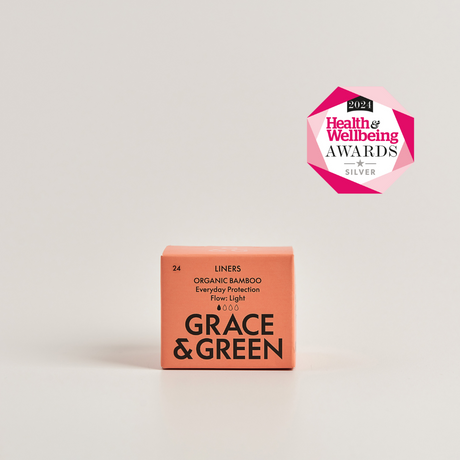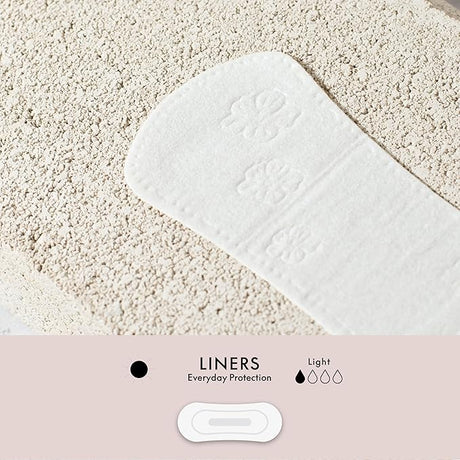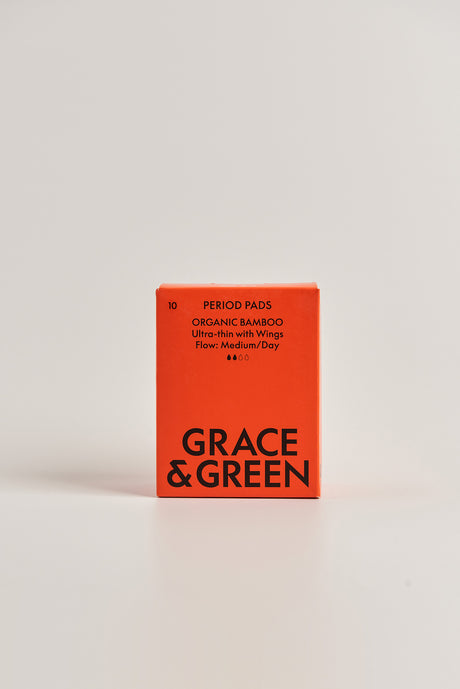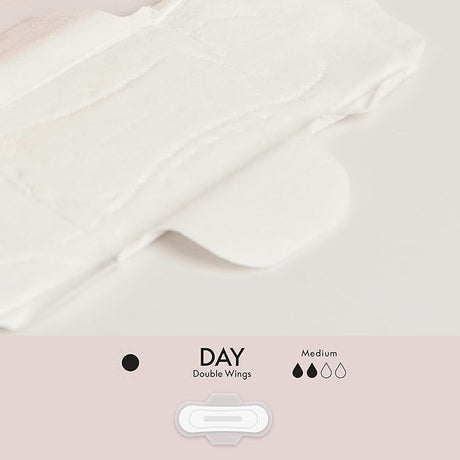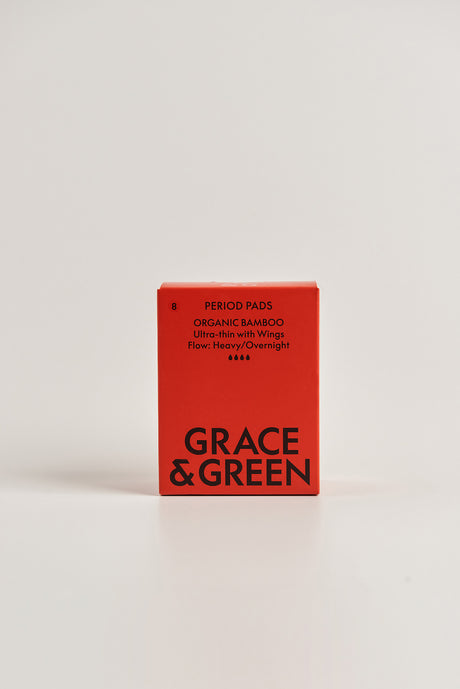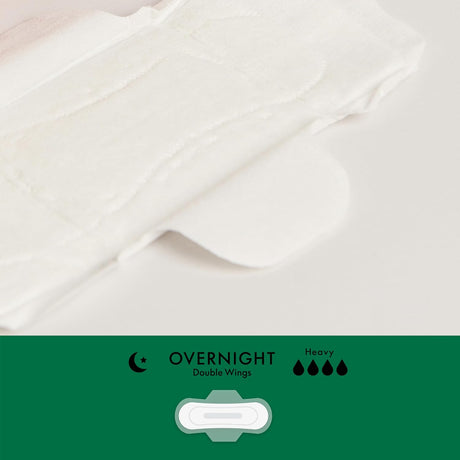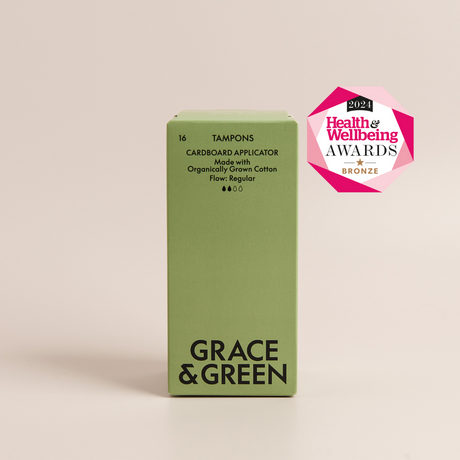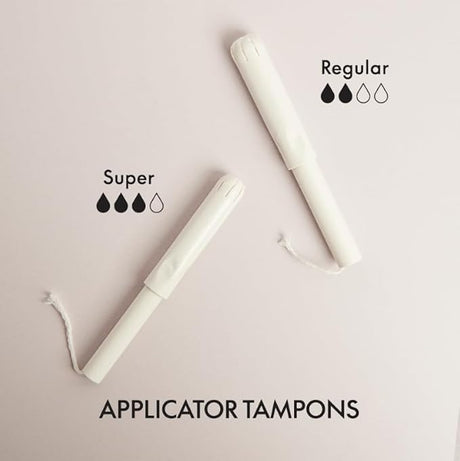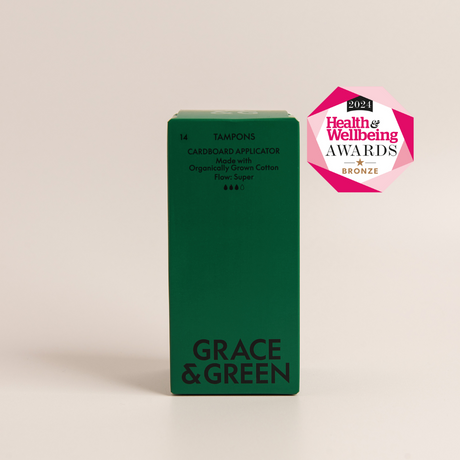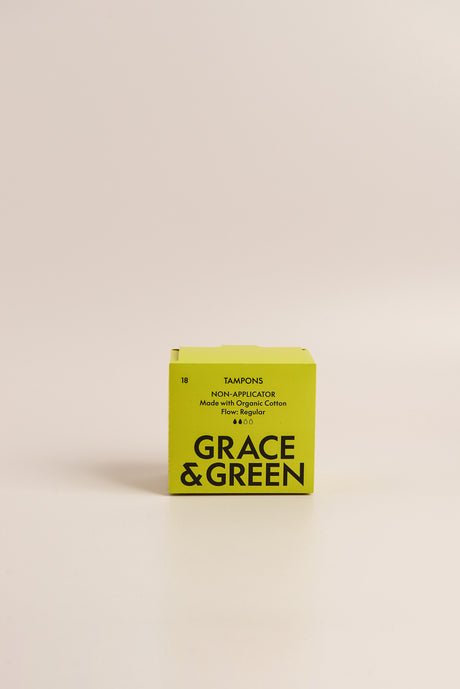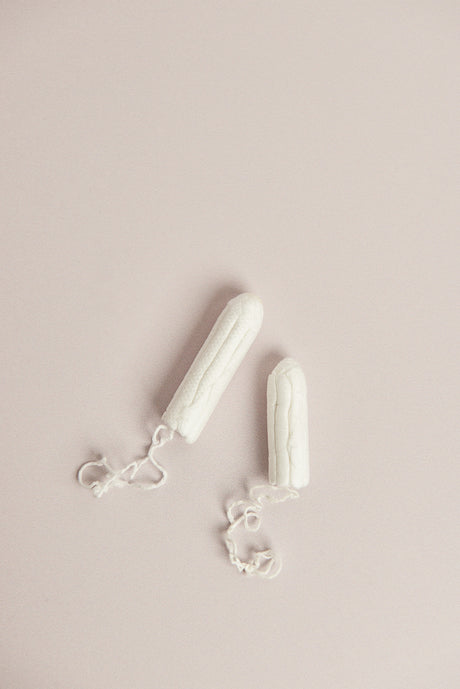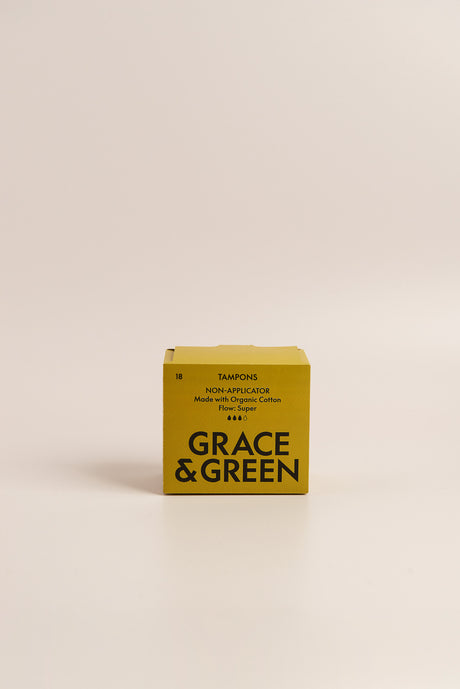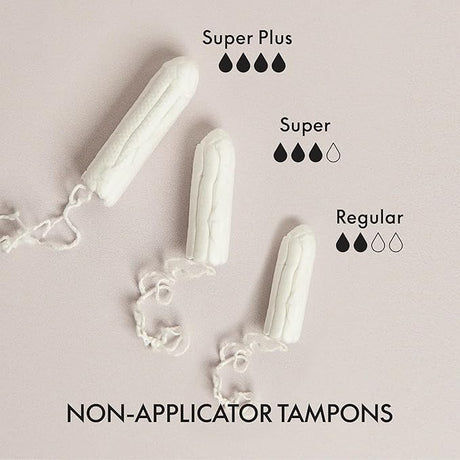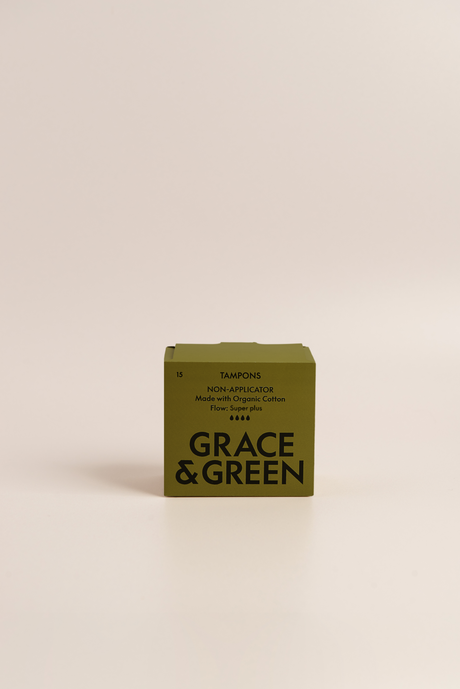Every day in the UK, an estimated 2.5 million tampons and 1.4 million period pads are flushed down the toilet. This is an alarming amount when you consider that these end up in our oceans and waterways damaging wildlife, polluting our planet and even negatively affecting our health.
Conventional period products contain up to 90% plastic and with the average menstruating person using over 11,000 disposable pads or tampons over a lifetime, that’s an overwhelming amount of plastic waste. We all remember the brightly coloured plastic wrappers from our teenage years, and unfortunately our planet will remember them for even longer.
Obviously we can’t avoid menstruating, and we all want to feel comfortable and secure with the products we use, but if you’re thinking about how to make a positive difference to your body and the planet but don’t know where to start, you should probably begin with your periods.
The difference between organic and non-organic period products
Choosing certified organic period products protects your body from the potentially harmful chemicals found in most tampons and pads. Organic versions are also fragrance and toxin free therefore less likely to cause irritation to your most sensitive skin.
Organic cotton and bamboo are also softer and more breathable so many people using products report a more comfortable period experience – which is something we’re all looking for, right?
Keep reading and we’ll tell you five reasons why you should make the switch.
- Best for vaginal health
Your vagina, it’s a body part that deserves all the love. But did you know it’s more absorbent than your stomach? That means if your vagina is exposed to a chemical it’s more dangerous than if it is in your food.
Even though you might think you only wear them for a few hours, it really does add up, so harmful chemicals and toxins should be out of the question. Organic cotton is free from dyes, toxins, fragrances, synthetic fibres and harsh chemicals. It is also pH-balanced to help protect your vaginal health.
- Say no to bleaching
Conventional cotton is usually bleached white with chlorine which creates dioxin – a substance that can cause serious problems with hormones .
- Protecting our planet
After you’ve used disposable period products, you can get rid of them without having anxious thoughts about where they might end up, or whether they’ll damage our beautiful planet with plastic particles. What’s more, you can even add them into your own home compost.
- Supporting farmers and their communities
Organic cotton is grown using only natural fertilisers, so farmers and the surrounding communities aren’t exposed to harmful chemicals. Pesticides used in conventional farming also pollute the waterways and soil, meaning that organic cotton farms preserve the land for future generations.
- Your tampon will outlive you
Whilst you typically only use tampons and pads for a couple of hours, the synthetic materials they’re made of can hang around our planet for hundreds of years, meaning eventually your tampon will in fact outlive you. What’s more, the toxic particles and microplastics will infiltrate our food chains, pollute our planet and poison wildlife.
Beyond individual change, for workplaces, public spaces and educational institutions who want to join us in dignified and sustainable period care, our Period Dignity scheme works to not only provide your space with our products, but also to access educational resources to spark a shift in the products we use. At Grace & Green, we believe that we have the power to be exceptionally ethical. No compromise.


